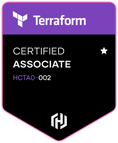What is Node.js?
Node.js is an open-source, cross-platform, JavaScript runtime environment that executes JavaScript code outside of a web browser. It was initially released in 2009 by Ryan Dahl and has since become one of the most popular tools for server-side programming.
Node.js is built on the V8 JavaScript engine, which is the same engine used by Google Chrome to execute JavaScript code. This means that Node.js provides a high-performance runtime environment for JavaScript that allows it to handle large-scale, data-intensive, and real-time applications with ease.
One of the key benefits of using Node.js is its event-driven, non-blocking I/O model, which makes it highly efficient and scalable. In traditional server-side programming, a single thread is used to handle one request at a time. However, Node.js uses an event loop to manage I/O operations and callbacks, which enables it to handle multiple requests simultaneously without creating new threads.
Another advantage of using Node.js is its vast ecosystem of modules and packages. Node.js has a rich library of open-source modules that can be easily installed using its package manager, npm. These modules provide a wide range of functionalities, such as web application frameworks, database drivers, and testing tools, making it easier for developers to build applications quickly and efficiently.
Comparing Popular Programming Languages: Node.js, Elixir, and PHP
When it comes to web development, having the right programming language can make a big difference in terms of efficiency and scalability. Three popular programming languages for web development are Node.js, Elixir, and PHP. Each language has its own unique features and advantages that make it suitable for different types of projects.
Comparison Table
| Feature | Node.js | Elixir | PHP |
|---|---|---|---|
| Type | Runtime Environment | Programming Language | Programming Language |
| Paradigm | Event-driven, non-blocking I/O | Functional, Concurrent, fault-tolerant | Procedural, object-oriented, functional |
| Concurrency | Single-threaded, asynchronous I/O | Built-in support for concurrency and distributed computing | Requires third-party libraries for concurrency |
| Scalability | Efficiently handles large numbers of connections | Designed for horizontal scaling and concurrent processing | Can handle large volumes of requests, but requires tuning |
| Performance | Fast and efficient for I/O operations | Efficient and fast for handling concurrent operations | Slower for high-load and concurrent operations |
| Code readability | Clean and easy-to-understand code | Concise and expressive syntax | Can be verbose for larger projects |
| Community | Large and active community | Growing community focused on reliability | Large community with many resources |
| Learning curve | Easy to learn | Requires familiarity with functional programming concepts | Easy for procedural programmers |
| Popular Use Cases | Web apps, real-time apps, microservices | Web dev, real-time systems, distributed computing | Web dev, CMS, e-commerce |
| Frameworks | Express.js, Next.js | Phoenix | WordPress, Laravel |
| Packages Available | 1.4 million+ | 12,000+ | 167,000+ |
Node.js is a fast and efficient runtime environment for executing JavaScript code outside of a web browser, making it a popular choice for building web applications, real-time applications, microservices, APIs, and IoT. It has a large and active community, and over 1.4 million packages available, making it easy to find and use third-party libraries and frameworks.
5 Reasons Why You Should Choose Node.js
Performance: Node.js is built on the V8 JavaScript engine, which is known for its high performance and low memory usage. This allows Node.js to handle large-scale, data-intensive, and real-time applications with ease, making it a great choice for building high-performance applications.
Scalability: Node.js is highly scalable due to its event-driven, non-blocking I/O model. This means that it can handle a large number of concurrent connections without creating new threads, which makes it highly efficient and cost-effective for scaling applications.
Rich Ecosystem: Node.js has a vast ecosystem of open-source modules and packages that can be easily installed using its package manager, npm. These modules provide a wide range of functionalities, such as web application frameworks, database drivers, and testing tools, making it easier for developers to build applications quickly and efficiently.
Reusability: Node.js allows developers to write JavaScript code for both client-side and server-side applications, which promotes code reuse and reduces development time. This also makes it easier for front-end developers to transition to full-stack development.
Community Support: Node.js has a large and active community of developers who contribute to its development, share knowledge, and provide support through various forums and resources.
Our Node.js Development Process
At Space-Rocket, we believe that a well-defined development process is key to delivering successful projects. Our Node.js development process is designed to ensure that every project meets our high standards for quality, performance, and usability. Our process includes the following stages:
- Consultation and Requirements Gathering: Understanding your business needs and goals to gather requirements for your Node.js application.
- Planning and Architecture: Creating a detailed plan and architecture optimized for scalability, performance, and user experience.
- Node.js Component and Page Development: Developing high-quality Node.js components and pages using modern techniques.
- Continuous Integration (CI): Regularly integrating code changes into a shared repository.
- Continuous Deployment (CD): Automating the deployment process to deploy changes efficiently.
- Ongoing Maintenance and Support: Providing ongoing support to ensure long-term performance.
Our Promise to Clients
We are committed to delivering the highest quality Node.js development services. With our experienced Node.js developers, we guarantee that every project will be completed to the highest standards.
Get in touch with Space-Rocket today to discuss your Node.js development needs!


